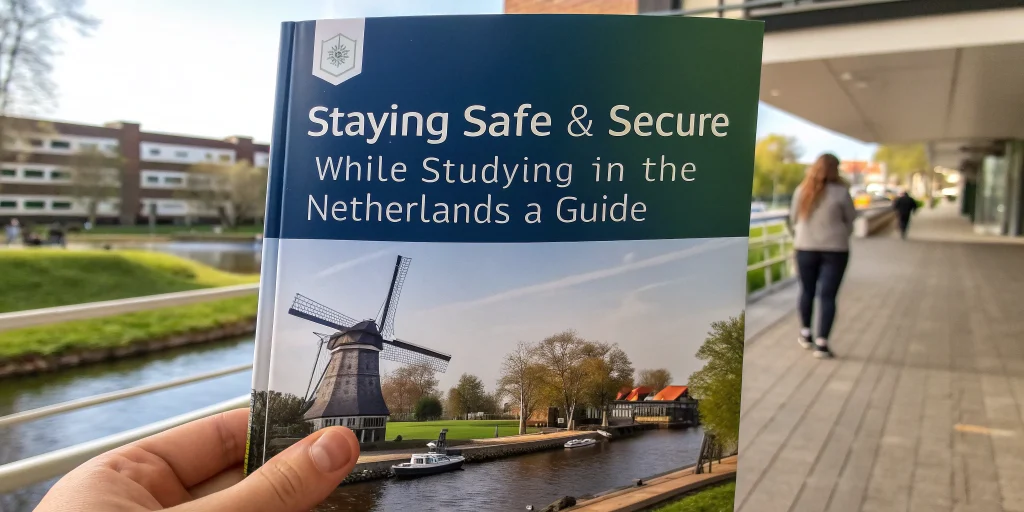Staying Safe and Secure While Studying in the Netherlands: A Comprehensive Guide for International Students
Quick Navigation
- General Safety Guidelines for International Students
- Campus and Accommodation Security Measures
- Travel and Mobility: Navigating Safely in the Netherlands
- Personal Preparedness: Essential Steps for Student Security
- Community and University Support Structures
- Conclusion: Empowering Secure and Successful Studies in the Netherlands
- Take the Next Step with Study in Netherlands
General Safety Guidelines for International Students
Safety begins with awareness and vigilance. While crime rates in Dutch cities are relatively low, international students are encouraged to take basic precautions on and off campus.
Key Practices to Follow
- Stay Alert at All Times: Always be conscious of your surroundings, especially in crowded places such as public transport, markets, and university buildings. If you notice unusual activities, trust your instincts and take appropriate caution.
- Report Suspicious Behavior: If you encounter or witness any suspicious behavior, promptly notify university security personnel or local police. Early reporting can prevent incidents and maintain a secure environment.
- Protect Your Valuables: Avoid leaving belongings unattended in public areas or study spaces. Use lockers or secure bags and keep your wallet, phone, laptop, and important documents close to you.
Campus and Accommodation Security Measures
University campuses and student housing are integral parts of student life. Ensuring their security is crucial to maintaining both academic focus and personal well-being.
Familiarize Yourself with Safety Protocols
- Know Your Campus Layout: Upon arrival, attend orientation sessions and study maps showing emergency exits, evacuation routes, and locations of on-campus security offices.
- Secure Your Accommodation: Always lock doors and windows, even if stepping out briefly. If available, use additional security features such as alarms or CCTV.
- Utilize Campus Security Services: Many universities offer escort services or night patrols. Use these resources, especially if you feel uncomfortable moving around campus late at night.
Travel and Mobility: Navigating Safely in the Netherlands
As a small, well-connected country, the Netherlands offers extensive travel opportunities for students. However, being prudent during travel within or beyond Dutch borders is important.
Follow Official Safety Advice
- Adhere to the Dutch Government Travel Code: The government classifies regions using a color-coded system—green, yellow, orange, and red—to indicate safety levels. Limit travel to areas marked green or yellow and avoid high-risk zones.
- Stay Informed About Local Conditions: Political unrest, crime, or natural disasters can affect safety unexpectedly. Keep monitoring reliable updates provided by your university or official authorities.
- Plan Your Routes: Use well-lit, populated routes when commuting, especially during early mornings or late evenings.
Personal Preparedness: Essential Steps for Student Security
Being prepared not only improves safety but also reduces stress during emergencies.
Key Preparedness Actions
- Secure Important Documents: Store your passport, residence permit, insurance papers, and emergency contacts in a safe place. Maintain both physical and digital copies accessible only to you.
- Register with University Emergency Systems: Most Dutch universities have emergency notification services that provide real-time alerts on safety and health issues. Make sure you are registered and check messages regularly.
- Know Emergency Contacts: Memorize or save phone numbers for local police, medical services, fire departments, and your country’s embassy or consulate.
Community and University Support Structures
Support networks and institutional services are vital to student well-being and security.
Utilizing Available Resources
- Attend Orientation Sessions: Universities organize safety and health briefings during induction. Participation helps you understand your rights, responsibilities, and available assistance.
- Access Student Support Services: These services include counseling, crisis intervention, and guidance for reporting harassment or discrimination. Do not hesitate to seek help if you feel unsafe or overwhelmed.
- Engage with Peer Networks: Building connections with peers through student associations or social groups provides both social support and collective vigilance.
Conclusion: Empowering Secure and Successful Studies in the Netherlands
Staying safe and secure while studying in the Netherlands involves a proactive approach rooted in awareness, preparedness, and community support. International students, recruiters, university teams, and educational agencies all play a critical role in establishing safe study environments.
By adhering to general safety guidelines, familiarizing yourself with campus security, following governmental travel advice, maintaining personal preparedness, and utilizing university support services, you can confidently focus on what truly matters—academic achievement and personal growth.
At Study in Netherlands, we are committed to supporting this journey by offering expert guidance, trusted partnerships, and innovative solutions that streamline international recruitment and safety management.
Take the Next Step with Study in Netherlands
Ready to enhance your institution’s international recruitment and student safety initiatives?

